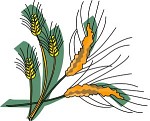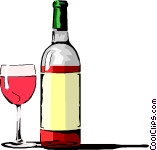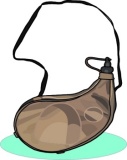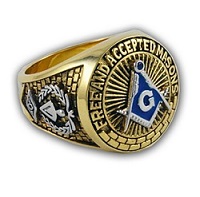Masonic Wages
Corn, Wine and Oil

Corn

Wine

Oil
Corn, wine and oil were the Masonic wages of our ancient brethren.
How do you earn Masonic wages?
Operative Freemasonry Wages:
Master of the Work: In ancient operative times, the Master of the Work received the highest wages. His wages were corn, wine, oil and sometimes the coin of the realm.
Fellowcraft and Entered Apprentice wages were less than the Master, but they were kept in "mete and drynk" (meat and drink).
Speculative Freemasonry Wages: In Speculative Freemasonry, Masonic wages are not earned in coin. They are the rewards earned through acts of kindness, good deeds of service, and the gift of your time to others.
They are earned by Mentoring other brethren, helping others, remembering the widow and the orphan and visiting the sick. In short, wages are earned much as the biblical verse says:
"Do unto others as you would HAVE them do unto you."
From the Revised Encyclopedia of Freemasonry by Albert Mackey, Vol. 1, page 244, 1929
Corn, Wine and Oil
Corn, wine and oil are the Masonic elements of consecration. The adoption of these symbols is supported by the highest antiquity. Corn, wine and oil were the most important productions of Eastern countries; they constituted the wealth of the people, and were esteemed as the supports of life and the means of refreshment.
David enumerates them among the greatest blessings that we enjoy, and speaks of them as:
Psalm 104: 15: "wine that maketh glad the heart of man, and oil to make his face to shine, and bread which strengtheneth man's heart".
Anointed With Oil:
In devoting anything to religious purposes, the anointing with oil was considered as a necessary part of the ceremony, a rite which has descended to Christian nations.
-
The tabernacle in the wilderness, and all its holy vessels,
were, by God's express command, anointed with oil;
-
Aaron and his two sons were set apart for the priesthood
with the same ceremony;
- ...and the prophets and kings of Israel were consecrated to their offices by the same rite.
Hence, Freemasons' Lodges, which are but temples to the Most High, are consecrated to the sacred purposes for which they were built by strewing corn, wine and oil upon the Lodge, the emblem of the Holy Ark.
Thus does this mystic ceremony instruct us to be nourished with the hidden manna of righteousness, to be refreshed with the Word of the Lord, and to rejoice with joy unspeakable in the riches of divine grace.
Discourse iv, 81: "wherefore do you carry you that in the pilgrimage of human life you are to impart:
-
a portion of your bread to feed the hungry,
-
to send a cup of your wine to cheer the sorrowful,
- and to pour the healing oil of your consolation into the wounds which sickness hath made in the bodies, or affliction rent in the heart, of your fellow-travellers?"
Corn...The Staff of Life: In processions, the corn alone is carried in a golden pitcher, the wine and oil are placed in silver vessels, and this is to remind us that the first, as a necessity and the "staff of life" is of more importance and more worthy of honor than the others, which are but comforts.
End of Albert Mackey dissertation on Corn, Wine and Oil, our Masonic Wages.
Vol. 2 page 1110, 1929
Wine: ...as a symbol of the inward refreshment of a good conscience is intended, under the name of the Wine of Refreshment, to remind us of the eternal refreshments which the good are to receive in the future life for the faithful performance of duty in the present.
End of Albert Mackey dissertation on Wine, our Masonic Wages.
Vol. 2 page 731, 1929
Oil: The Hebrews anointed their Kings, Prophets and High Priests with oil mingled with the richest spices. They also anointed themselves with oil on all festive occasions, whence the expression in
Psalm xlv, 7: "God hath anointed thee with the oil of gladness."
End of Albert Mackey dissertation on Oil, as part of our Masonic Wages.
...And, thus, your unspotted white lambskin Masonic apron is a symbol reminding you of the necessity of the purity of heart, and uprightness of conduct in order to earn the Masonic wages which are due you.
Your final wages will be earned when you leave this world and travel to:
"that House not made with hands", where you will
receive your Masonic wages for a life well spent in the "coin" of that realm.
Masonic Education Builds Masonic Retention
Related Pages:
Return from Masonic Wages to Freemason Symbols
5 Fast Methods To Find the Information You Want to Learn About
- Search Box - Use the Search Box at the top of your page.
- Site Map - Use my Site Map page to find the topics you are most interested in.
- Carousel - Use the carousel of pages at the top of your screen.
- Menu Icon - On MOBILE, click the MENU button at the top of each page.
- Masonic Books - Browse through a selection of Masonic books.






